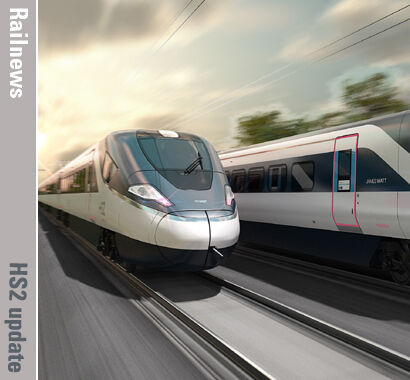Transport secretary Louise Haigh has criticised the Conservatives’ management of HS2, in the wake of a report from the National Audit Office which warns that capacity between London and Manchester will be reduced rather than increased because the trains planned for HS2, which will continue north of Birmingham on the conventional network, may have fewer seats than the Pendolinos they will replace.
The report says it may be necessary to encourage people ‘to travel at different times or to not travel by rail’, although it concedes ‘this may constrain economic growth in the region over the long term’.
One alternative would be longer trains, but these would need ‘additional works at existing stations such as at Crewe or Preston’.
The station at London Euston would have six platforms rather than ten, because there will be fewer high speed trains.
The report concludes that it will cost £100 million to close down the work on HS2 north of Birminghan, which was cancelled last October, and urges the DfT and HS2 Ltd to ‘reset the programme successfully to avoid repeating past failures’. It says ‘they will need to be clear on what benefits they want from the programme now.’
Transport secretary Louise Haigh says in a tweet on X that: ‘The Tories recklessly mismanaged HS2 and allowed the costs to spiral out of control. This report lays bare the sheer scale of Conservative incompetence. We won’t make the same mistakes. We’re assessing the books and will set out next steps in due course.’
Meanwhile the charity Campaign for Better Transport says HS2 has become ’a complete shambles’.
Silviya Barrett of the CBT said: ‘At a time when we need to encourage more people to take the train, it beggars belief that the public might be discouraged to travel with even higher fares and fewer seats.
‘The severely curtailed HS2 project has now turned into a complete shambles that needs to be urgently addressed.
‘For the sake of current and future generations, the Government must consider the best way to expand rail capacity and improve connectivity from Manchester to central London as originally intended, whether high speed or not.’


